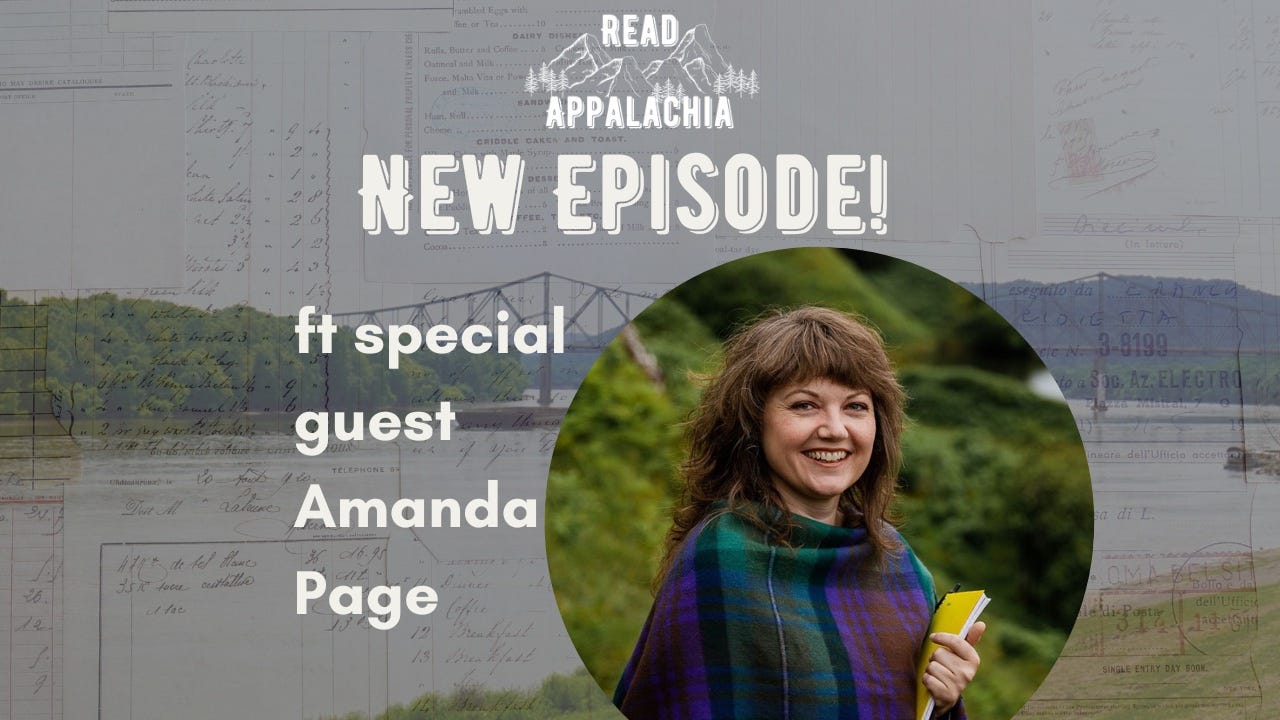
One of the biggest solo projects I’ve ever had, Read Appalachia holds a special place in my heart. I love the people from my region and our literature. For each episode of Read Appalachia, I sketch out my ideas for the introduction for each episode. I’ll be including these snippets here for folks to enjoy. These posts will be bonus posts in addition to Winchester Ave’s regular content.
Episode 0 - Introduction
(Originally Published January 19th, 2023)
Welcome to my little work area here in the South Carolina upstate. I’m sitting in my office, which is a square room, and the walls are lined with bookshelves. My two Corgis, Dylan and Gwen, are arguing over a toy on the carpet, as always. Through my window, I can see rows of trees out back. For the last couple of years, I lived in the South Carolina Lowcountry, which is full of wetlands, oak trees draped in Spanish moss, and palm trees basking in the sun. But we just moved back to the upstate. Sometimes, I still expect to see palm trees out my window, but now it’s nice to look up and see a landscape that looks more like home.
I guess for me, returning to the upstate was like returning home in a lot of ways. I’ve come to love this area in the upstate, with all of its quirks and oddities. Our chosen family is here, our support system. But no matter how much I love the upstate, it’s a very different kind of home than the one where I grew up. And that’s our starting place for today, the idea of home and what that means for us as Appalachians. What does home look like for us? And will we be able to stay there? Why do some of us leave?
Last spring, I flew back home to the Ohio River Valley, landing on the small strip of runway that is the Huntington airport. The moment the plane touched down in West Virginia, I praised the skies and texted folks that I’d finally landed.
I was visiting home to attend the first-ever Appalachian Foothills Festival, founded and run by Amanda Page. Amanda’s documentary Peerless City made its world premiere at the festival. And as I sat in the Vern Riffe Center at Shawnee State University, I marveled at how much about my hometown I didn’t know. The documentary follows Portsmouth, Ohio, through its history of town slogans, each marking a new era of prosperity or decline.
Peerless City doesn’t shy away from the town’s difficult truths, like the town’s racist history, the community’s struggle with the opioid crisis, and the financial downturn that the entire town is experiencing. But as person after person expressed that they still think that their hometown could bounce back, I felt like I could see a glimpse of what might be possible. Their hope is a fragile thing, small and delicate. But given a chance, it might be able to grow.
My visit ended, far too soon, as always. As my plane taxied across the runway to fly back to the South, I looked out at the familiar tree-covered mountains around me. My heart felt like one of my middle school friendship necklaces, each half wandering on its own, never to be reunited. The moment I leave one place, I’m homesick for the other, always caught in between.
Rolling waves of loss hit me as the plane took off, flying towards the coast, and I watched the mountains until they turned into the foothills, no longer resembling the place I already missed. For me it was this moment that decided it for me: in some shape or form, I was going to turn Read Appalachia into a podcast.
For many years, I had a different podcast, one that featured books by or about women from all over the world. These women came on the show and shared their stories with me and graciously answered my questions about their work. But after six wonderful seasons, that podcast ended. And I decided it was time for a change. I decided it was time to come home.
And with Read Appalachia’s monthly podcast, I’ll be covering different topics, like the importance of Appalachian people telling their own stories, both as authors and as the publishing team working behind the scenes. We’ll talk about things like the rich culture of poetry from the region, the role of Appalachian media and journalism, and all things Appalachian cuisine.
For the launch of the podcast, we’re starting out with three episodes, each looking at one of these three questions: “What is Appalachian Literature, anyway?” “Where does it come from?” and “What’s in store for the future of Appalachian Literature?” Starting on February 2nd, these episodes will be released every week on Thursdays. Then in March, we’ll move to our regular schedule of new episodes coming out on the first Thursday of every month. So make sure you're subscribed to Read Appalachia on your favorite podcatcher of choice and stay tuned!



